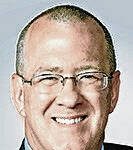Iowa in 1976 was a different time. An obscure former governor from Georgia was attracting a tiny fraction of the crowd when he dropped into Jim Albright’s house in Cedar Rapids two months before the 1976 Iowa caucuses. He wore the kind of fat tie that hasn’t been fashionable for decades and a bright Ipana smile that even then seemed a trifle unsettling, and repeated that performance — small groups, big smile — with remarks that were refreshing in the wake of the Watergate scandal but seem irredeemably treacly today.
“If you support me, I’ll never make you ashamed,” he told a Sioux City audience of 20; that was an overflow crowd in those days for the long shot candidate. “You’ll never be disappointed. I have nothing to conceal. I’ll never tell a lie.”
All this came roaring back when Jimmy Carter — a transformational presidential candidate, if not a transformational president — went into hospice care recently.
In Iowa, he is remembered for traversing the first of the half-million miles he would travel to the presidency, usually in a borrowed car, with drivers who knew the back roads but usually not the back story of the Annapolis-trained engineer. Carter transformed how political figures campaigned for president, even as he transformed the role of Iowa in American politics.
He campaigned as an Everyman, or at least an Everyman who was at ease — eerily so, some analysts felt — in the rich soil of the Corn Belt. “I’m a farmer,” he would say, and he meant it, though his crop wasn’t the Pioneer Corn Co. Golden Harvest H2580 raised in Iowa at that time, but peanuts. (He supplied the grains of salt.) “I’m a full-time farmer. If I can exemplify what the American people would like to see in their president, then I’ll be elected. If I can’t meet those high demands, and I hope they are high, I don’t deserve to be president.”
Maybe he thought he deserved to be president, but in the early days here in Iowa, no one thought he would be.
“He camped out for months here,” said Dennis Goldford, a political scientist at Drake University in Des Moines. “His campaign was completely below the radar. Nobody paid any attention to them. But Carter understood this was a forum for him, a place where you didn’t need to spend much money and you had to talk to real people. You couldn’t use people as props here. He talked to everyday people and stayed in peoples’ homes or crummy motels.”
Carter had a clear objective: “Our goal in Iowa is to come in first. That’s what we want to do. I’m not sure we’ll do it.”
He didn’t. Carrying a garment bag over his shoulder but no baggage from Watergate or Washington, Carter came in second, to “uncommitted” (37.2%), but he beat expectations. That was enough, because everyone knew that leading the pack of the actual candidates was what mattered. Carter (with 27.6%) did, and from that moment the Iowa caucuses were established as the first, and — because Carter built on his Iowa performance eventually to win the presidency — an exceedingly significant, contest in presidential politics. (Though the Democrats have placed South Carolina at the front of the 2024 political parade, the Republicans, who hold the more meaningful pre-convention contests next year, will continue to keep Iowa at the front.)
“Just think of such a sucker as me as president!” Abraham Lincoln said two years before he was elected. Two years before Carter won the White House, he was nobody’s idea of a president — nobody except for Carter himself, and a few scattered people in Iowa.
David Shribman is the former executive editor for the Pittsburgh Post-Gazette and a national columnist syndicated by Andrews McMeel Universal. Send comments to [email protected].




